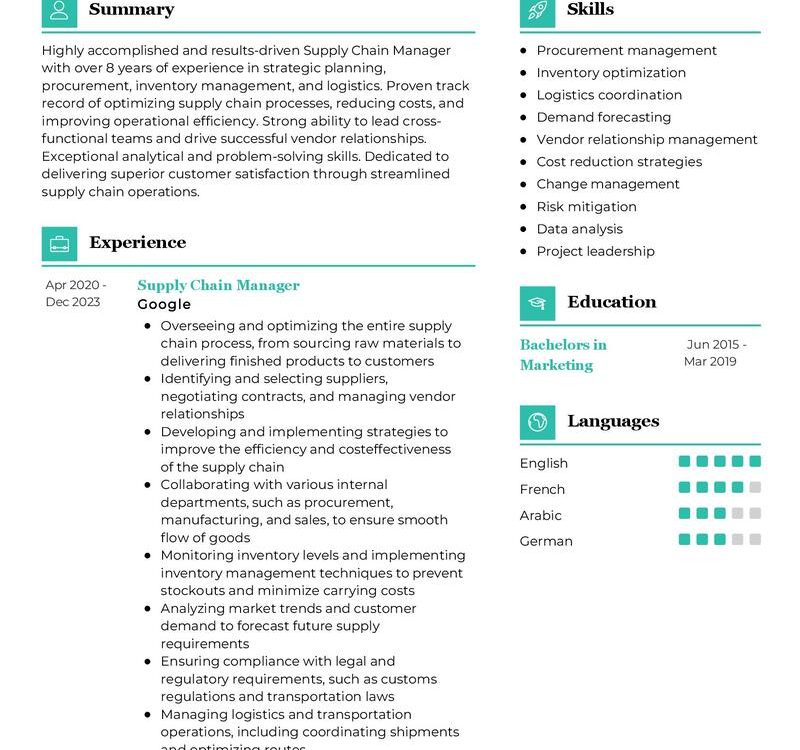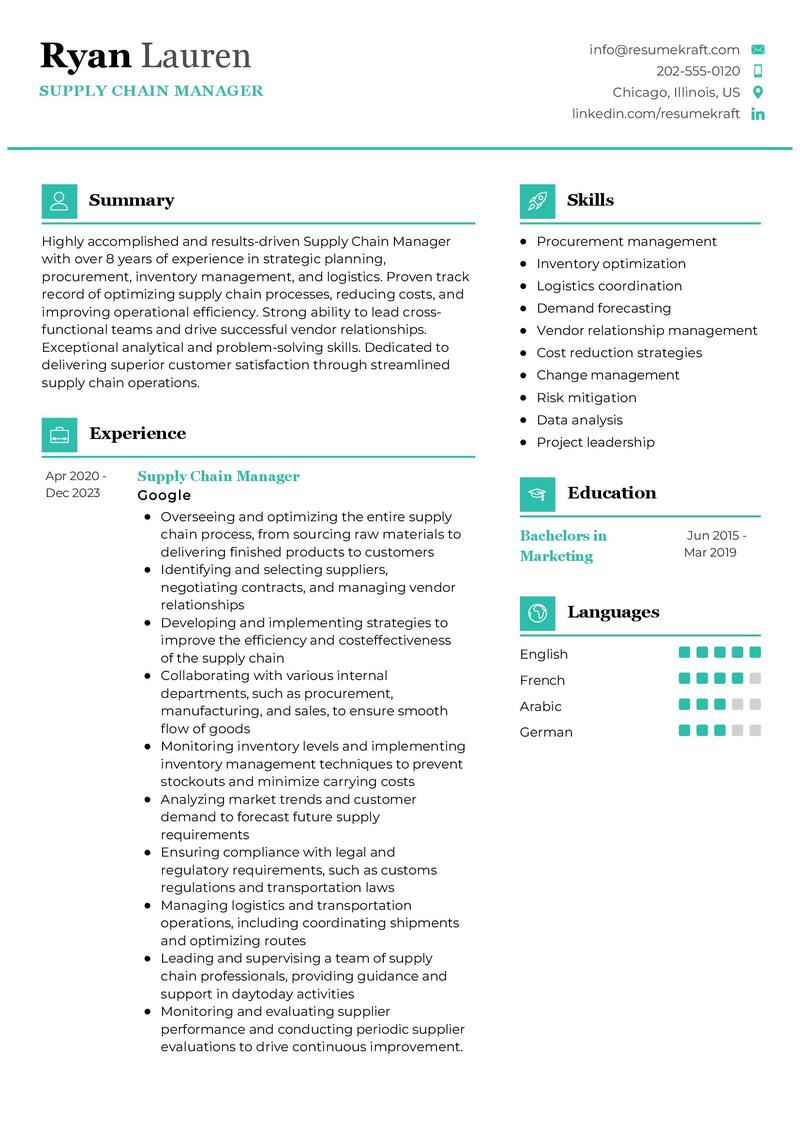Understanding the Role of a Supply Chain Manager
Supply Chain Managers play a critical role in ensuring the smooth flow of goods and services from suppliers to customers. In today’s dynamic business environment, their responsibilities extend beyond mere logistics to encompass strategic planning, relationship management, and operational efficiency. Let’s explore in detail the multifaceted role of a Supply Chain Manager and the skills required to excel in this position.
Key Responsibilities of a Supply Chain Manager
The role of a Supply Chain Manager is diverse and demanding, requiring a blend of analytical skills, leadership abilities, and logistical expertise. Here are some of the key responsibilities associated with this role:
- Strategic Planning: Developing and implementing strategies to optimize the supply chain process, minimize costs, and enhance efficiency.
- Supplier Relationship Management: Establishing and maintaining strong relationships with suppliers to ensure timely delivery of quality goods and services.
- Inventory Management: Overseeing inventory levels to prevent stockouts while minimizing excess inventory and carrying costs.
- Logistics Coordination: Managing the transportation, warehousing, and distribution of goods to ensure timely delivery to customers.
- Performance Monitoring: Monitoring key performance indicators (KPIs) to track the effectiveness of the supply chain and identify areas for improvement.
- Risk Management: Identifying potential risks in the supply chain, such as disruptions in supply or demand, and developing strategies to mitigate these risks.
- Continuous Improvement: Implementing process improvements and best practices to enhance the efficiency and effectiveness of the supply chain.
These responsibilities require strong analytical skills, attention to detail, and the ability to collaborate effectively with internal teams and external partners.
Skills and Qualifications Required
Becoming a successful Supply Chain Manager requires a combination of education, experience, and specific skills. Here are some of the qualifications and skills typically sought after in candidates for this role:
- Education: A bachelor’s degree in business administration, supply chain management, logistics, or a related field is often required. Advanced degrees or certifications may be preferred.
- Analytical Skills: The ability to analyze data, identify trends, and make data-driven decisions is essential for optimizing the supply chain process.
- Communication Skills: Strong verbal and written communication skills are necessary for effectively communicating with suppliers, customers, and internal stakeholders.
- Leadership Abilities: Supply Chain Managers must be able to lead and motivate cross-functional teams to achieve common goals and objectives.
- Problem-Solving Skills: The ability to identify problems, develop creative solutions, and implement effective strategies is crucial for overcoming challenges in the supply chain.
- Technical Proficiency: Proficiency in supply chain management software, such as ERP systems and inventory management tools, is often required.
- Strategic Thinking: Supply Chain Managers must have a strategic mindset and the ability to develop long-term plans and goals for the supply chain.
Additionally, experience in supply chain management, logistics, or related fields is highly valued, particularly experience in a leadership or managerial role.
Writing a Strong Supply Chain Manager Resume
When crafting a resume for a Supply Chain Manager position, it’s important to highlight your relevant skills, qualifications, and experience. Here are some tips for writing a strong resume:
- Include a summary section at the top of your resume that highlights your key skills, qualifications, and experience.
- Use bullet points to list your relevant experience, focusing on accomplishments and achievements rather than just job duties.
- Quantify your achievements where possible, using numbers and metrics to demonstrate the impact of your work.
- Highlight any relevant certifications or advanced degrees you may have, such as Certified Supply Chain Professional (CSCP) or Six Sigma certifications.
- Customize your resume for each job application, tailoring your skills and experience to match the specific requirements of the position.
By following these tips, you can create a compelling resume that showcases your qualifications and experience as a Supply Chain Manager.
Conclusion
In conclusion, the role of a Supply Chain Manager is crucial for ensuring the efficient and effective flow of goods and services throughout the supply chain. By possessing the right combination of education, experience, and skills, Supply Chain Managers play a vital role in driving operational excellence and delivering value to organizations. If you’re interested in pursuing a career as a Supply Chain Manager, consider utilizing resources like AI Resume Builder to create a standout resume that highlights your qualifications and experience.


